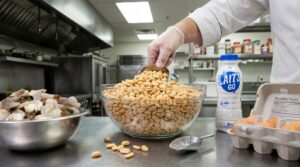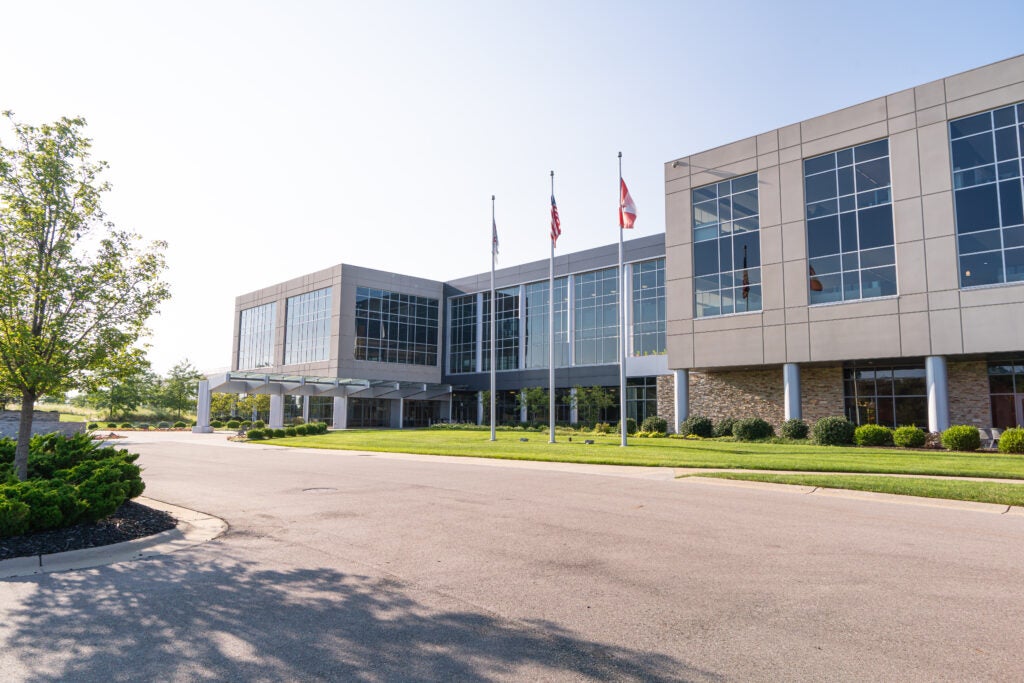Hectic holiday business means many foodservice operators won’t start their 2019 planning until the new year is already well underway. Then it’s a scramble to analyze the previous year’s performance and develop strategies that build on successes and address challenges.
Unfortunately, the less time you spend on planning, the less effective it’s likely to be. Start planning now to give yourself ample opportunity to set the stage for a prosperous new year.
There are three key areas your annual plan should address: sales building, staffing and profitability.
Start by Reviewing your P&L
A profit and loss (P&L) analysis is a great place to begin. Whether prepared by your internal accounting team or a third-party service, the P&L statement will give you a high-level overview of your company finances.
A P&L analysis is an essential first step because it tells you where you’ve been. You need that to determine where you want to go. Involve your leaders in analyzing how and why you achieved the P&L results you did.
Add benchmarking
Benchmarking your performance is a solid next step. The National Restaurant Association publishes a Restaurant Industry Operations Report that can help. It provides crucial data on cost of sales, gross profit, direct operating expenses and other performance measurements to enable you compare your business with those of a similar profile.
Define sales goals
Now you’re ready to work on your sales-building goals. Make sure to account for both specific dollars and guest counts (on- and off-premise). Including guest counts lets you get a true measure of sales growth, independent of tactics like menu price increases. The overall objective is to drive organic growth.
Key goals for sales-building could include:
- Overall sales dollars
- Guest counts
- Daypart growth
- Off-premise consumption growth: enhanced takeout, delivery, retail extension
- Check averages
- Facility refresh
Develop tactics
With the goals in place, you can define the tactics to help you accomplish them. It makes sense to employ multiple approaches. The success of one or more tactics within each goal makes it easier to achieve the plan and promote growth. Some tactics may support multiple growth opportunities. Here are some examples:
Costs Tactics
Food Recipe analysis
Menu analysis
Inventory analysis
Menu refresh
Beverages Recipe analysis
Operating ROI analysis
Solid execution always trumps volume. The litmus test should be, “If I employ this tactic, can I be best in class, differentiate my business and/or have solid growth in proportion to my investment?”
Keep in mind that any tactic carries hard and soft costs. The hard costs—people, product, marketing and materials—are often easier to recognize. But soft costs like training, process management (e.g., updating a POS system) and change management (e.g., how your teams or guests react to a new menu) can have a big impact on success. Make sure you consider both hard and soft costs.
Create a staffing plan
Staffing will continue to be a concern in 2019, so it’s critical to develop a plan to address labor challenges. Think about each step in the employee life cycle—hiring, training, motivating, retaining—to capture every task. Ask your HR experts or third-party staffing providers for their input and to add anything you might have missed. This is your baseline staffing plan. It will no doubt reveal opportunities for improvement.
Set specific goals for 2019—like reduced turnover or decreased labor costs—with specific and realistic measures. Tactics to consider are the use of acquisition, onboarding, learning management systems and retention/motivation technology.
Define checkpoints to gauge how you’re tracking toward completing your staffing goals. At these mile markers, determine whether you’re behind, on target or ahead of plan, and make adjustments as necessary.
Of all areas that will directly impact sales building and profitability in 2019, staffing may have the largest impact. An additional detailed plan here is the new standard.
Grow your profits
As you’re developing goals and tactics for the new year, consider the following opportunities for profitable growth. They can make a real difference for your business.
Portability. Today’s consumers want to enjoy restaurant-quality food off-site: at home, at the office, on the road or wherever it’s convenient. Operators who can efficiently fulfill this desire through takeout, delivery, online ordering and other tactics can boost sales and guest counts without an expensive expansion of their physical footprints.
Staffing technologies. Third-party staffing solutions can streamline all aspects of an employee’s life cycle—including hiring, onboarding, document processing, training, motivating and even termination. That saves you time, frustration and money.
Enhanced core menu and LTO applications. Your annual plan should include a schedule for menu changes and updates as well as limited-time offers. Implementing these tactics can be made easier and more economical with a tool like MenuStudioPlus, which allows you to create and print customized core menus, menu inserts, table tents, table talkers and more.
Plan with SMART criteria
Proven effective across all industries, including foodservice, the SMART method increases the likelihood that your plan will be fully executed. To implement it, make sure that your goals and tactics are:
Specific: Define the objective so it is easily understood by anyone who has basic knowledge of the task.
Measurable: Set benchmarks for achievement and parameters for measurement, and establish what success looks like.
Attainable: Determine, in conjunction with all the stakeholders, that the plan is feasible based on the strategy and steps laid out.
Realistic: Establish objectives that can be accomplished with the available resources, knowledge and time.
Time-bound: Lay out timing out for all relevant steps of the plan and define end date(s).
Make it a team effort
The SMART method calls for you to enlist other stakeholders in your business to validate your plan. Including employees in the process gives them a voice and makes them feel more responsible for the execution of the plan. It’s also a great way to hone staff leadership skills.
Consider establishing a cross-functional team that includes front- and back-of-the house employees, both hourly and salaried, to assist you in developing and reviewing each step. You can even have customers weigh in.
Write it out, make it real
Annual planning is not complete until it’s documented. It’s much more likely to be accomplished if it’s written out. Although the topics and process can be complex, you should strive for simplicity in communication and execution.
If this is your first year creating a written, actionable plan, focus on just three to five goals. Otherwise you risk setting yourself up for failure. You can get more ambitious in future years as you become more comfortable and familiar with the process.
The pressures of increased costs and the battle for market share make documented, outcome-based annual planning essential. Planning ahead gives you a clear edge on the majority of operators who don’t.
Plan on help
Talk to your Sales Representative about the team of experts and suite of tools that can help you plan for a successful 2019.











